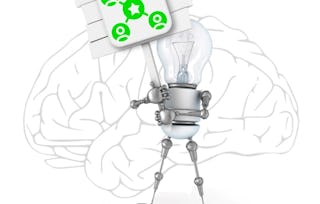The world of work is characterised by rapid ongoing change. In this dynamic environment, one of the most critical skills for leaders is their capacity to learn and to adapt; to engage in the continuous development of their skills in managing and leading others. This course will assist you in the ongoing development of your skills and abilities by focusing on the nature of the self-development process. You will reflect on and develop self-awareness of your current leadership style to understand the strengths you need to develop and which challenges you will face as a leader. The course also examines the change process, and explores the processes of self-regulation that underpin personal skill development.

Professional development: Improve yourself, always
Seize the savings! Get 40% off 3 months of Coursera Plus and full access to thousands of courses.

Professional development: Improve yourself, always
This course is part of Adapting: Career Development Specialization

Instructor: Associate Professor Paul Nesbit
36,987 already enrolled
Included with
906 reviews
What you'll learn
Critically evaluate the nature of the self-development process
Apply skills of self-reflection to enhance self-awareness of development insights about your leadership styles
Apply skills of self-reflection to enhance self-awareness of development insights about your abilities and challenges as leaders
Apply the self-development process to an area of a personal leadership skill challenge
Details to know

Add to your LinkedIn profile
12 assignments
See how employees at top companies are mastering in-demand skills

Build your subject-matter expertise
- Learn new concepts from industry experts
- Gain a foundational understanding of a subject or tool
- Develop job-relevant skills with hands-on projects
- Earn a shareable career certificate

There are 6 modules in this course
Earn a career certificate
Add this credential to your LinkedIn profile, resume, or CV. Share it on social media and in your performance review.
Instructor

Offered by
Explore more from Leadership and Management
 Status: Free Trial
Status: Free TrialMacquarie University
 Status: Preview
Status: Preview Status: Free Trial
Status: Free TrialUniversity of Pennsylvania
 Status: Free Trial
Status: Free Trial
Why people choose Coursera for their career

Felipe M.

Jennifer J.

Larry W.

Chaitanya A.
Learner reviews
- 5 stars
82.35%
- 4 stars
15.32%
- 3 stars
1.65%
- 2 stars
0.11%
- 1 star
0.55%
Showing 3 of 906
Reviewed on May 19, 2020
The course doesn't take too much time each week, but effective for maintaining focus. The material delivery is also easy to understand.
Reviewed on Sep 23, 2024
This course is really very helpful to understand self phase , reflection and how to set your goal & how to achieve, develop thoughts .
Reviewed on Aug 28, 2022
This course was well organised and easy to undersgand the content. Professor Paul Nesbit was excellent. I will do more. Thank you

Open new doors with Coursera Plus
Unlimited access to 10,000+ world-class courses, hands-on projects, and job-ready certificate programs - all included in your subscription
Advance your career with an online degree
Earn a degree from world-class universities - 100% online
Join over 3,400 global companies that choose Coursera for Business
Upskill your employees to excel in the digital economy

